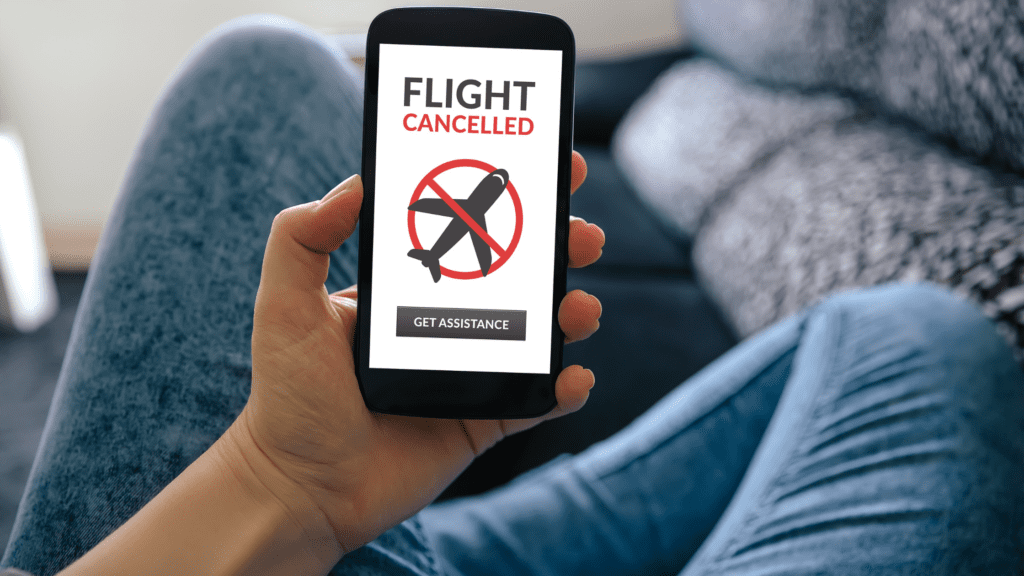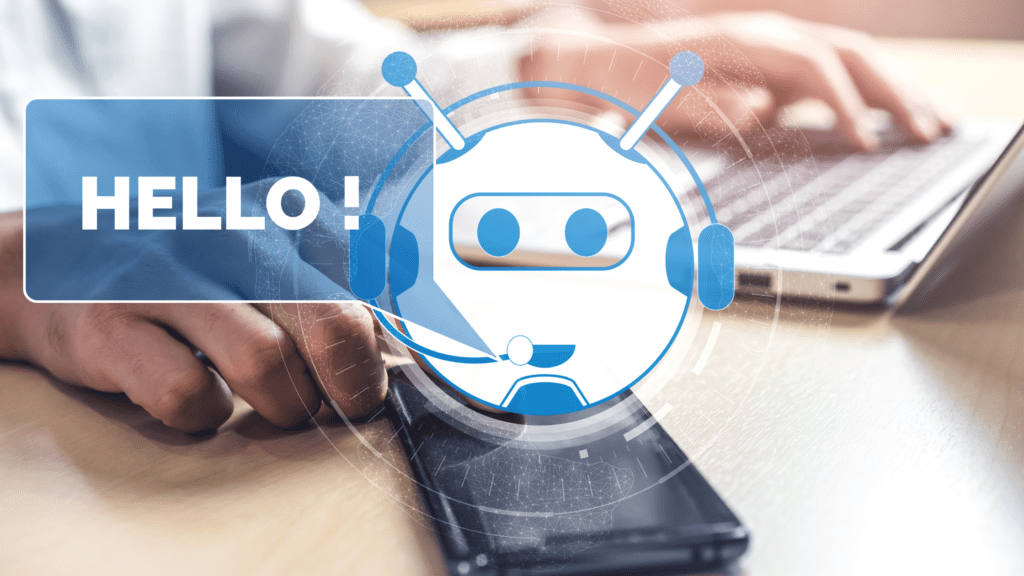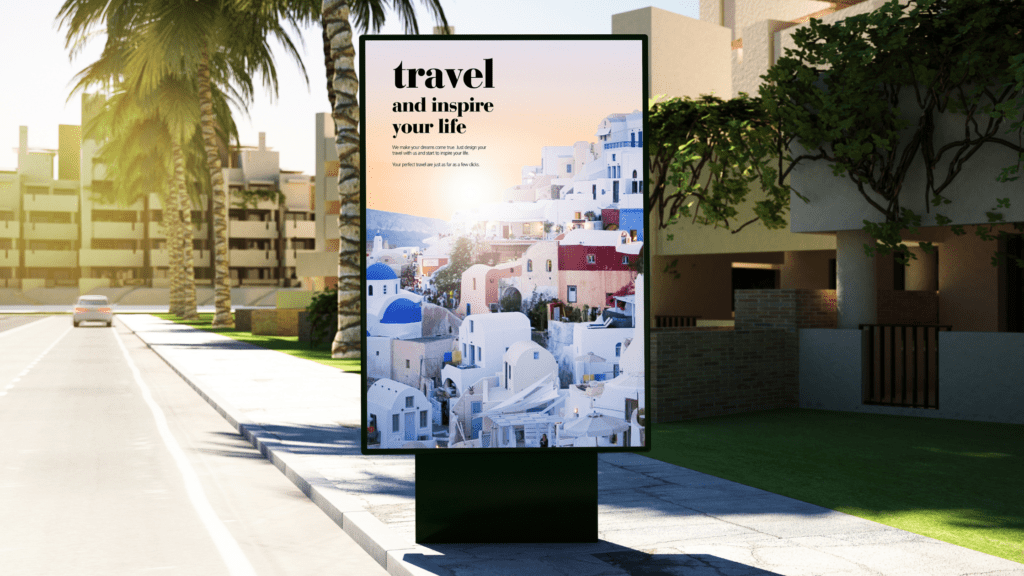How to Handle Different Travel Personalities in Your Group
April 3, 2025
Read MoreThe travel industry has been revolutionized by Artificial Intelligence (AI) in recent years. With AI algorithms and machine learning, it is now possible to predict customer preferences, streamline workflows, improve customer experience, and enhance marketing strategies.
In this blog post, we will delve into the many ways that AI is changing the travel industry. From personalized trip planning to real-time monitoring of travel data, you can expect improved efficiency and productivity.
We’ll also explore how AI can be used for competitive advantage in business strategy and decision-making while ensuring ethical considerations are taken into account. It’s no longer science fiction! Read on to discover how unlocking the power of AI will transform the travel industry.
Artificial intelligence (AI) uses computers and machines to mimic how the human brain solves problems and makes decisions.

As technology continues to advance, AI has emerged as a revolutionary tool in transforming various industries. The travel industry, in particular, stands to gain from the many benefits that AI has to offer.
From improving customer experiences through personalized recommendations and real-time data monitoring to streamlining operations and workflow with staffing solutions like chatbots and virtual assistants, AI has the potential to revolutionize how we travel.
However, it is important to consider the challenges and limitations of implementing AI in the travel industry, such as data privacy concerns and the need for human oversight.
In the travel industry, AI has emerged as a game-changer that can enhance customer experiences while streamlining business operations.
By analyzing customer preferences and behaviors, AI can help personalize travel experiences and provide targeted recommendations. Through predictive maintenance, AI can also identify maintenance issues early on planes and other transportation vehicles, enhancing safety while reducing downtime. Chatbots powered by AI can handle customer queries 24/7, providing real-time assistance to travelers.
Overall, AI has the potential to revolutionize the travel industry by providing better experiences for customers and increasing efficiency for businesses.
AI is transforming the way we plan our trips, offering personalized recommendations and streamlining booking processes.
With the help of AI-powered chatbots, travelers can book flights and accommodations with ease. Additionally, machine learning algorithms can provide personalized travel itineraries based on user preferences.
The technology also helps detect and prevent fraud in the travel industry, making it a reliable option for customers. Furthermore, natural language processing allows for seamless communication between travelers and travel companies, enhancing the overall experience.
When it comes to planning a trip, everyone has their own set of preferences and requirements. With AI-powered personalization, travelers can book customized trips that suit their needs perfectly.

By analyzing data such as past travel history, search queries, and social media activity, AI algorithms can recommend flights, accommodations, and activities based on traveler preferences. This saves time for both travelers and travel agents while enhancing the overall travel experience.
With personalized trip planning through AI, travelers can rest assured that their trip will be uniquely theirs.
In the fast-paced world of travel, real-time monitoring of data has become crucial for ensuring a seamless travel experience. Artificial intelligence enables travel companies to monitor flights, hotels, and rental cars in real-time and alert travelers about any changes or disruptions to their itinerary.

This technology helps to reduce the impact of unforeseen circumstances such as flight cancellations or delays, enabling travelers to make alternative arrangements quickly. Additionally, AI-powered chatbots can assist travelers with booking flights and accommodations while providing personalized recommendations based on their preferences and past travel history.
Problem-solving with AI leads to a smoother, hassle-free travel experience for customers.
As the travel industry continues to embrace the power of AI, it is also transforming the way staffing is managed. Predicting staffing requirements and optimizing work schedules based on historical data and current demand has become much more efficient with AI integration.

Chatbots powered by AI are also being used to provide 24/7 customer service, reducing the need for human resources while improving the overall customer experience.
With AI’s ability to analyze vast amounts of data and identify patterns quickly, it’s no wonder that many travel companies are investing in this technology to streamline their operations and stay ahead of their competitors.
The use of AI in the travel industry has the potential to streamline operations and workflow, resulting in a more efficient and cost-effective system.
By automating routine tasks such as inventory management and staffing predictions, travel companies can free up staff to focus on more complex issues and provide better customer service.
Additionally, AI-powered chatbots can handle customer queries and bookings 24/7, reducing the need for human customer support staff.
As a result, AI helps travel companies save both time and money while improving the overall customer experience.

Providing excellent customer service is crucial in the travel industry, and AI has the potential to significantly enhance the overall customer experience. With AI-powered chatbots and virtual assistants available 24/7, customers can receive prompt assistance for any queries or issues they may have.
Additionally, AI can analyze vast amounts of data to personalize travel recommendations and identify fraudulent activities, ensuring a safe and secure travel experience. By automating routine tasks, AI frees up staff to focus on more complex issues and provide better service to customers.
Overall, integrating AI in customer service can lead to improved satisfaction and loyalty among customers.
As travel companies aim to provide 24/7 customer support and assistance, chatbots have emerged as a highly efficient communication tool. They can automate routine tasks such as answering common questions, booking flights, and providing personalized recommendations based on user preferences.

Chatbots can also handle customer queries in multiple languages, making them ideal for international travel companies. By using chatbots, travel companies can improve efficiency, reduce staffing costs and enhance the overall customer experience. It also allows them to focus more on delivering value-added services.
As the travel industry becomes more competitive, companies are turning to AI to improve their marketing strategies.
By using chatbots and machine learning algorithms, travel companies can offer personalized customer service and support while also anticipating travel trends and offering customized packages.
Image recognition technology can also be used to help travelers find destinations based on photos they have taken.
Overall, AI has the potential to revolutionize marketing in the travel industry by providing targeted campaigns that meet customer needs and preferences.

More and more companies are leveraging AI to improve their marketing campaigns. By collecting and analyzing customer data, travel companies can tailor their promotions to individual preferences and offer a more personalized experience.
AI tools can analyze multiple data sources such as search history, booking patterns, and social media activity to identify trends and predict customer behavior. However, it’s important to balance personalization with privacy concerns and ensure that customers’ data is secure.
Effective use of AI in marketing can lead to improved engagement and ROI for travel companies.

It’s crucial for companies to create effective advertising campaigns that resonate with their target audience. This is where AI comes in, offering the ability to analyze customer data and create more targeted and personalized ad campaigns.
By identifying the preferences and behaviors of different customer segments, AI can help travel companies optimize ad placement and delivery, ensuring that ads are seen by the right people at the right time.
With AI-powered targeted advertising, travel companies can improve their marketing ROI and drive more bookings than ever before.
Social media has become an integral part of the travel industry. Now, AI can help businesses enhance their social media strategy for a more personalized and engaging customer experience.
AI-powered chatbots enable real-time communication on social media platforms, providing customers with quick answers to queries and concerns. Additionally, AI can analyze social media data to identify trends in customer behavior and preferences. These are then used to create targeted advertising campaigns that are more likely to resonate with each audience segment.

By leveraging the power of AI in their social media strategy, travel companies can improve brand awareness and loyalty while driving more bookings
The travel industry has a significant impact on the environment, and AI can help make it more sustainable. By analyzing data on energy consumption, transportation routes, and hotel occupancy, AI-powered systems can identify areas where efficiencies can be improved, reducing waste and minimizing carbon emissions.
Furthermore, AI can assist in selecting eco-friendly travel options for customers, such as hotels with green certifications or transportation modes with lower carbon footprints.

By embracing AI for sustainability, travel companies can attract environmentally-conscious consumers. They’ll also differentiate themselves from competitors while promoting responsible tourism and best practices.
In today’s digital age, data privacy and security are essential. With the rise of AI in the travel industry, it is imperative that companies ensure that personal data is protected and only used for authorized purposes.
To address these concerns, travel companies must design AI systems with privacy and security in mind. Encryption and authentication measures should be implemented to secure user data, while transparency in data usage should be maintained to build trust with customers. Compliance with regulations such as GDPR and CCPA is crucial to avoid legal consequences.

By prioritizing data privacy and security, travel companies can set themselves apart from competitors by earning the trust of their customers.
The travel industry is fiercely competitive, and companies that want to stay ahead need to embrace the power of artificial intelligence. AI will transform the travel industry. By leveraging AI technology, travel companies can personalize their offerings for customers and improve the overall customer experience.
Additionally, AI-powered analytics can offer insights into customer behavior and preferences, facilitating better decision-making from business strategy to revenue management. Ultimately, embracing AI can create a significant competitive edge in the travel industry.
And by the way… this article was written almost exclusively using AI!
April 3, 2025
Read MoreMarch 20, 2025
Read MoreMarch 6, 2025
Read MoreFebruary 20, 2025
Read MoreJanuary 9, 2025
Read More